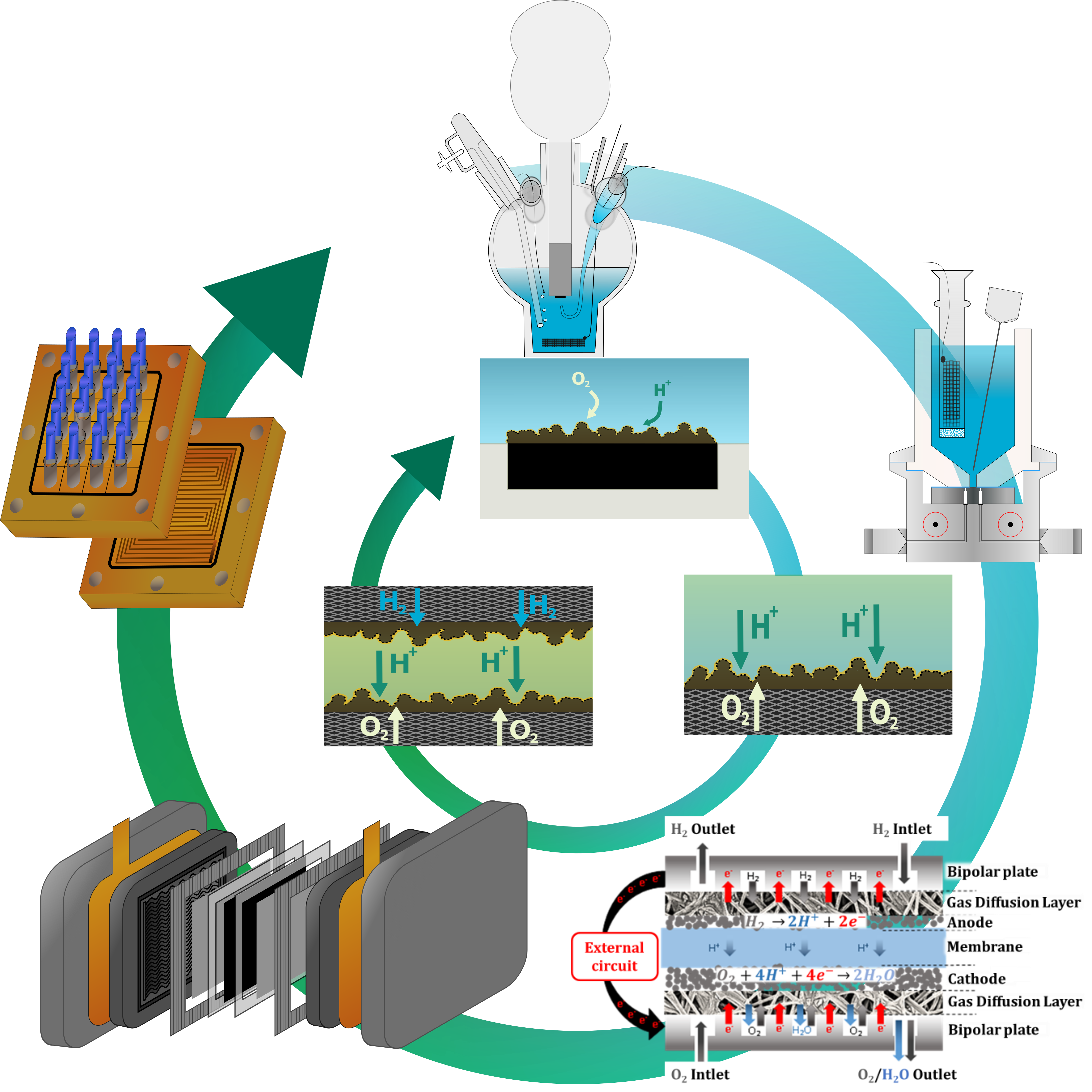
Abstract :
The worldwide and progressive awareness of the necessity to limit greenhouse gases emissions lead to a general enthusiasm on the development of fuel cells as electrochemical generators, to address the field of light and heavy transportation. However, the rise of this kind of system cannot avoid the production of better catalyst and better engineered membrane-electrodes assemblies (MEA), the core of the system. This improvement comes by accessing both higher performances and durability.
This work is firstly focused on the development at the lab scale of a test protocol on a gas diffusion electrode (GDE) enabling the determination, in model but nevertheless as representative as possible of a real system, of the performance of state-of-the-art or lab-synthesized materials. A major part of this thesis work addresses durability tests on commercial catalysts. These studies are realised with two scopes in mind. The accelerated stress test of Pt3Co/VC following established globally used protocols (US DoE and FCCJ) shows the importance of the voltage range in which the MEA is working, both for the lower and upper voltage boundaries. The second study is done at controlled cell voltage to evaluate and understand the degradation mechanisms of a Pt/VC catalyst. These studies are realised using both electrochemical measurements on a test bench and post mortem analyses of the materials and reveal the significance of the cell voltage control, which implies to put the MEA at the heart of a system balance of plant.
PhD defense which will take place on 8th December at 2 H pm


